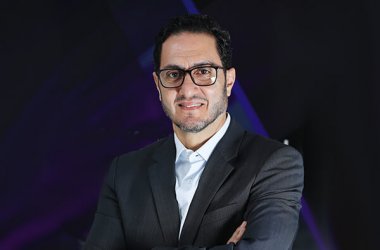With a membership of 80,000 accounting and finance professionals, the Institute of Management Accountants is a cornerstone in career development and industry networking. IMA Chairman Joe Vincent was recently in Dubai to discuss the importance of ‘Digital Darwinism’ – the process of natural selection through technological evolution – and took time out to speak with CNME.
Tell me about your thoughts on Digital Darwinism and its implications for the finance industry.
It’s all about the evolution of technology and finance’s ability to keep up with it. It’s influencing a lot of areas. The Association of Chartered Certified Accountants and the IMA did a study about a year or two ago which listed 10 main aspects of technology that would be important in this respect. The main ones are mobile, social, Big Data and Artificial Intelligence. Accountants are the most likely figures who can help organisations influence this change and help them keep up; they’re the closest ones to IT. If you don’t make this jump then you’re going to be out of business at the end of the day. One example is Kodak, who thought they could run a film business forever, which didn’t happen. The important thing is that management accountants stay on top of these issues and lead their companies into this unknown future and do everything they can to keep up. I’ve been in accounting for 40 years and we started out with transistors and four and eight column pads. That change is nothing compared to what will happen in the next 10 or 20 years. The Wall Street Journal recently wrote a piece discussing how if we ever get into quantum, speeds will be tens of thousands times faster, which will make a PC look like an abacus. Everything today is binary, but with quantum we could be dealing with atoms instead of silicon and electronics.
Finance has to be a leader in this process. I think the main issue is Big Data. There’s so much being generated on a daily basis, it’s important that it can be put into manageable buckets.
With that in mind, given that 90 percent of data created in history has been produced since 2012, is ‘Digital Darwinism’ a relatively new concept?
It’s been around for a long time. Companies haven’t really kept up with the pace of it. The last eight to 10 years has made Digital Darwinism more important. Finance needs to work with IT to refine the process, and look at how to manipulate the data.
You said that accountants are positioned closest to IT departments. Why do you think this is?
The two have been melded for years. Finance has to help IT to understand what the business’ needs are, and IT can make things happen by manipulating the data, but finance must feed them by saying what they want. It’s an iterative, indefinite process.
Is resistance to Digital Darwinism an option?
No. We won’t be able to resist, if you do you’ll be left on the side. Financial roles are a judiciary in that they maintain and ensure we have a well thought out plan. Without finance and the support of upper management, you’ll be left by the wayside and somebody will pass you.
Is the Middle East’s status as an emerging market with a large amount of greenfield IT projects an advantage or disadvantage in this culling process?
It’s absolutely advantageous. A lot of older firms have history that’s harder to get rid of. Change comes different to everyone and can be hard. Having legacy systems that need updating is a disadvantage. Generating data in different ways and putting it into buckets that don’t exist on old systems is an absolute advantage for the Middle East.
What can CFOs do to stay on top of Digital Darwinism? What strategies and processes should they implement?
There’s no black and white answer to that. It pertains to each business and its needs. Social, mobility, cloud and BYOD will affect everyone in one way or another.
What’s the importance of the way that customers interact with devices and their experience in terms of the technology used?
I don’t think there’s any limit to that. Now you can book airline tickets and check house prices and details on your smartphone. The opportunities are endless. The CFO needs to work with operating people to identify which initiatives will provide value for the business. Along with their team, they need to understand changes in technology, and come up with ideas in utilising it.
Companies need to make sure they adapt to help their customers. For example, Google recently altered its algorithms to give preference to mobile sites, which has been a huge upheaval for those who aren’t mobile-friendly, which has caused a scramble.
If we’re not on top of those changes, there will be a huge impact for the finance part of an organisation. We as finance professionals need to make sure we’re adaptive and responsive to changes and that we manage risk – cybersecurity falls on the CFO too.
What role will the Internet of Things play in this transition?
It continues to grow, and certainly can transform businesses. For example, your fridge could be saying that you need to buy more milk, and the next step is that it goes ahead and does that without you asking. It’s a fascinating thing to take advantage of. At the same time it’s important to say that you can easily waste money trying to chase certain tech that may not catch on.
Cyber-risk multiplies with this, from a risk point of view it leaves the door wide open. People can hack into systems easily. It falls on the CFO as our teams are the keepers of the data. IT may generate it but finance are typically the guardians of it.
Is there one particular technology that will play the biggest role in Digital Darwinism or is it a question of finding the right blend at the right time?
We don’t always pick these things correctly. Market forces often decide something and the consumer takes over, then the business has to fall back and catch up to utilise these things.
Do you have any advice for CFOs who are skeptical of staying ahead of the curve and taking certain risks?
It’s a balancing act. If you stay behind, you’ll fall behind, and if you get too far ahead, you open yourself to risk. The biggest part is awareness of new technologies and how they will affect business. The CFO job doesn’t get any easier with all this technology.
From a reporting point of view technology makes the CFO job easier to punch out numbers much quicker. We have a responsibility to provide timely and accurate information. That frees up time to create value for the business. A lot of that is about keeping aware of what’s going on.
How can CIOs and CFOs do that, given that technology budgets are largely spent on ‘keeping the lights on?’
It needs to come from business development money. A business case needs to be built to make these things happen. It’s not a CFO decision; the CFO’s role is to bring people together to make sure the business understands.





